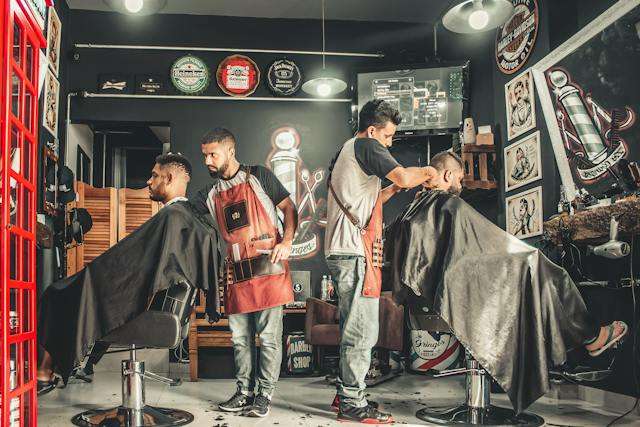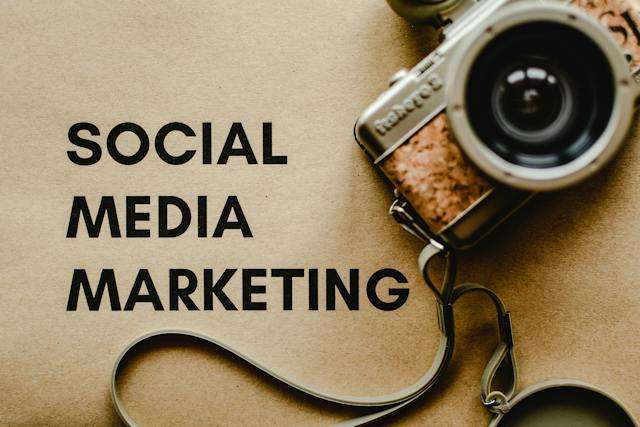Hyperlocal Social Media Marketing leverages the power of social media platforms to connect businesses with local communities, fostering a deeper and more personalized engagement.
In the ever-evolving landscape of digital marketing, businesses are constantly seeking innovative strategies to reach their target audience.
One such strategy that has gained prominence in recent years is hyperlocal social media marketing
In this article, we will explore the concept of Hyperlocal Social Media Marketing, its significance, and how businesses can harness its potential to drive success in their local markets.
Understanding Hyperlocal Social Media Marketing
Hyperlocal Social Media Marketing involves tailoring marketing efforts to a specific geographic area, often on a neighborhood or community level.
Unlike traditional marketing, which aims to reach a broad audience, hyperlocal strategies focus on connecting with consumers in a very specific geographic area.
This approach is particularly beneficial for businesses with a physical presence, such as local retailers, restaurants, or service providers.

Key Elements of Hyperlocal Social Media Marketing
Geo-targeting:
Geo-targeting is a fundamental aspect of hyperlocal marketing. Social media platforms allow businesses to target their audience based on their location, ensuring that content is relevant to users in a specific area.
This can be achieved through the use of location-based hashtags, geotagged posts, or paid advertising that targets users within a local market
Localised Content:
Creating content that resonates with the local community is crucial for hyperlocal success.
This involves incorporating local events, landmarks, and culture into your social media posts. Businesses can share stories about their involvement in community events, showcase local staff, or highlight products and services that cater specifically to the needs and interests of the local audience.
Community Engagement:
Building a sense of community is at the heart of hyperlocal social media marketing.
Businesses can actively engage with their audience by responding to comments, organizing local contests, and featuring user-generated content.
This not only strengthens the bond with existing customers but also attracts new ones through word-of-mouth recommendations within the community.
Local Influencer Collaborations:
Partnering with local influencers can significantly boost hyperlocal marketing efforts. These influencers often have a dedicated local following and can help businesses reach a wider audience within the community.
Collaborating with influencers for product reviews, sponsored posts, or joint events can enhance brand visibility and credibility in the local market.
Benefits of Hyperlocal Social Media Marketing
Increased Relevance:
By tailoring content to specific geographical areas, businesses can ensure that their marketing messages are highly relevant to local audiences.
This relevance increases the likelihood of engagement and conversion, as consumers are more likely to respond to content that speaks directly to their needs and interests.
Enhanced Targeting:
Hyperlocal strategies allow businesses to refine there targeting efforts, ensuring that marketing resources are allocated efficiently.
This precision targeting not only maximizes the impact of campaigns but also minimizes wasted resources on audiences outside the relevant geographic area.
Improved Customer Loyalty:
Establishing a strong local presence fosters a sense of community and loyalty among customers.
When businesses actively participate in local events, support community causes, and engage with customers on a personal level through social media, it builds trust and loyalty, ultimately leading to repeat business.
Competitive Advantage:
Hyperlocal marketing provides a competitive edge, especially for small and medium-sized businesses
By connecting with the local community in a meaningful way, businesses can differentiate themselves from larger, more impersonal competitors.
This localized approach helps create a unique brand identity that resonates with the values and preferences of the local audience.
How to Implement Hyperlocal Social Media Marketing Strategy
Identify Target Areas:
Begin by identifying the specific geographic areas where your target audience resides.
Analyse data and demographics to understand the characteristics of the local population.
This information will help tailor your content to match the preferences and needs of the community.
Optimise Social Media Profiles:
Ensure that your social media profiles accurately reflect your business and its connection to the local community.
Include location details, contact information, and links to your website. Use local imagery and language that resonates with the target audience.
Create Localized Content Calendar:
Develop a content calendar that incorporates local events, holidays, and trends. Create posts that highlight your business’s involvement in the community and showcase products or services relevant to the local audience.
Consistency in posting is key to maintaining engagement.
Utilize Geo-targeting Features:
Leverage the geo-targeting features available on social media platforms. This allows you to reach users within a specific radius of your business location.
Experiment with paid advertising campaigns that target local audiences to increase visibility.
Engage with the Community:
Actively engage with the local community by responding to comments, messages, and reviews.
Participate in local discussions and share user-generated content.
Consider organizing or sponsoring local events to strengthen your ties with the community.
Collaborate with Local Influencers:
Identify and reach out to local influencers who align with your brand. Collaborate on content creation, promotions, or events that can help amplify your reach within the community.
Authentic partnerships with influencers can significantly enhance your credibility.
Monitor and Analyze Results:
Regularly monitor the performance of your hyperlocal campaigns. Track engagement metrics, audience growth, and conversion rates.
Use analytics tools provided by social media platforms to gain insights into the effectiveness of your strategy and make data-driven adjustments as needed.
Who Should Use Hyperlocal Social Media Marketing?
Firstly, let’s dive into who should be using hyperlocal social media marketing.
Organic search has been known to generate the highest ROI for any business, so if you’re not using hyperlocal social media marketing for your business then you’re missing out on a large piece of cake.
Ideal users for hyperlocal social media marketing

Local Businesses:
Small businesses, such as restaurants, cafes, boutiques, and service providers, can benefit significantly from hyperlocal marketing
It allows them to focus their efforts on attracting customers in close proximity.
Retailers:
Brick-and-mortar retailers can leverage hyperlocal marketing to drive foot traffic to their physical stores.
Special promotions, events, or discounts targeted at the local community can be particularly effective.
Service Providers:
Professionals offering services like plumbers, electricians, landscapers, and others can use hyperlocal marketing to connect with residents in their immediate area.
It helps establish a strong local presence and build a loyal customer base.
Real Estate Agents:
Hyperlocal social media marketing is valuable for real estate agents looking to target specific neighbourhoods or communities.
They can promote local listings, share market updates, and position themselves as experts in the area.
Restaurants and Food Services:
Hyperlocal social media marketing is crucial for businesses in the food industry.
Advertising daily specials, promotions, and events can attract local customers who are more likely to dine in or order takeout.
Healthcare Practices:
Local medical practices, dental clinics, and other healthcare providers can benefit from hyperlocal marketing to reach potential patients within their immediate vicinity.
Events and Entertainment:
Promoters of local events, concerts, or cultural activities can use hyperlocal marketing to reach a targeted audience in the surrounding area and boost attendance.
Community Organisations:
Non-profit organisations, local government agencies, and community groups can use hyperlocal marketing to engage with residents, promote events, and share important information.
Conclusion
Hyperlocal Social Media Marketing represents a powerful avenue for businesses to connect with their local audience in a meaningful way.
By tailoring content, engaging with the community, and leveraging geotargeting features, businesses can create a distinctive brand presence that resonates with local consumers.
The benefits of increased relevance, enhanced targeting, improved customer loyalty, and a competitive advantage make hyperlocal marketing a valuable strategy for businesses of all sizes.
As technology continues to evolve, businesses that embrace hyperlocal social media marketing will be better positioned to thrive in the dynamic and competitive landscape of the digital age.
You can also checkout our expert guide on how to buy Tesla stocks on eToro












0 Comments